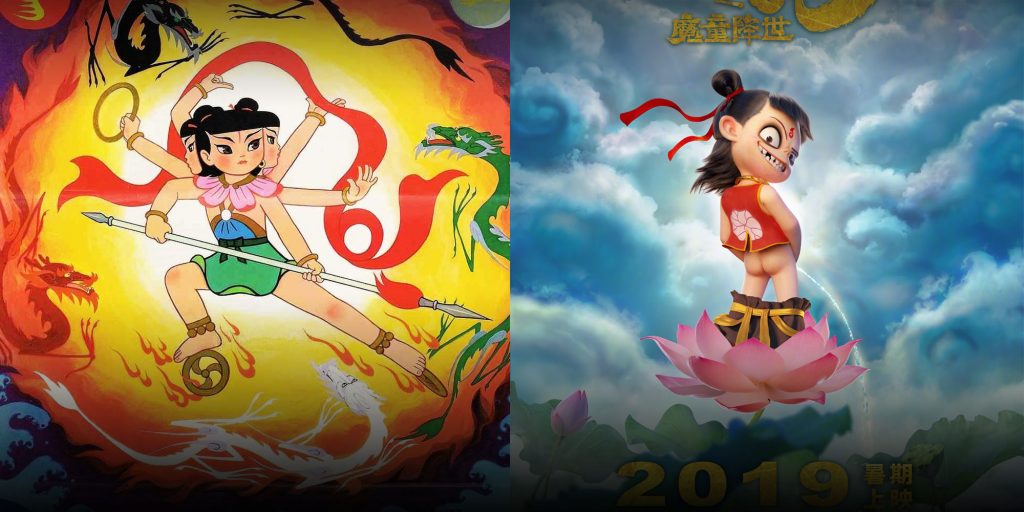What two “Ne Zha” adaptations, released 40 years apart, say about the state of Chinese storytelling.
This summer, China’s undisputed box office champion was a spunky, mischievous god-prince. “Ne Zha” raked in more than 4.7 billion yuan ($656 million) in less than two months, making it the country’s highest grossing animated film and second-highest grossing domestic film of all time.
Although not as well-known abroad, Ne Zha is a household name in China, where he’s possibly the second-most beloved mythological hero after “Monkey King” Sun Wukong. (“Monkey King: Hero is Back” previously held China’s animated box office belt.) The third son of deity Li Jing — sometimes known as the “Pagoda-bearing Heavenly King” — Ne Zha was born a troublemaker and a fighter. Often whirling through the air on wheels of fire, with a floating red sash draped around his shoulders, Ne Zha is one of the few child deities in the Chinese pantheon.
But this summer’s blockbuster isn’t the first time Chinese animators have brought Ne Zha’s tale to the big screen. “Prince Ne Zha’s Triumph Against the Dragon King,” released in 1979, at the beginning of the “reform and opening-up” period, is a beloved classic and one of the best-known Chinese animations of all time. Revisiting it today, after the towering success of this year’s adaptation, offers an interesting window into how the country’s animation industry — and the values it espouses — has changed over the past 40 years.

A still frame from 1979’s “Prince Ne Zha’s Triumph Against the Dragon King,” showing Ne Zha pulling out the dragon’s spine. From Douban
“Prince Ne Zha” is based on what is arguably the most famous legend associated with the boy god: his battle against the Dragon King. When Ne Zha was 7 years old, he went to bathe himself in the legendary East Sea. Churning the waters with his sash, he disturbed the Dragon King’s underwater palace and later brutally killed the king’s third son in battle.
Mythic justice is harsh, and the heavens decree is that Ne Zha’s parents must die to wash out the blood. Before the sentence is carried out, Ne Zha decides to save them by killing himself. CONTINUE READING
– This article originally appeared on Sixth Tone.






